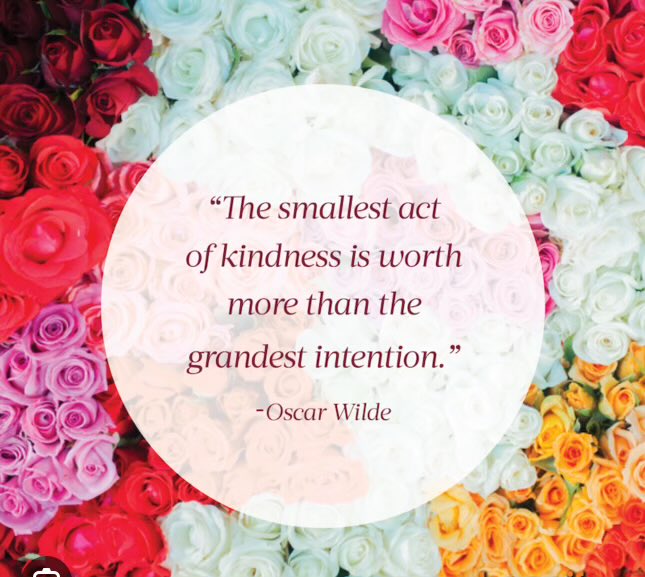I am reading a book that echoes a lot of Putnam’s findings in The Upswing, namely the shift among Americans from a communitarian ethos to an individualistic one. One of the book’s observations is that the old America used to have a concept of duty and responsibility that has since been replaced by individualism and something like "the search for happiness."
I am reminded of the movie Spanglish, in which Flor, a Mexican American* mother, and Adam Sandler’s character are falling in love. Sandler’s marriage is on the rocks; he is married to a selfish person, a bad mother, and a cheater. The movie ends with Flor resisting her feelings for Sandler and walking away. I think how you feel about her decision says a lot about who you are. She felt a commitment to the duties and responsibilities of not only her own family, but Sandler’s as well. A life with Sandler might have made the two of them happier, but her daughter would have to adjust to a new person in her life and he would be fighting for custody of his own kids. It would have been messy.
Now I don’t know the details of K’s situation, but his marriage seemed happy from the outside. I’m wondering if he simply found someone he fell in love with, and that love overpowered everything, including his marriage. You could even make the case that he felt a duty to love, and he was making the difficult but right decision.
Or you could say he was acting selfish.
There are a lot of reasons for the rising divorce rate. But a non-trivial contributing factor is that people used to have a sense of duty to family and marriage that trumped their own happiness.
In 1967, right as Putnam’s downswing toward individualism was turning, The Beatles released “All You Need is Love.” The theme was that all you need is love, and that love is all you need. Love is the most popular theme of pop music over the last 50 years. Here is a list of more than 100 songs with “love” in the title. Love was the central tenet of the hippie movement. Woodstock was “Three Days of Peace and Love.” How many songs are there about responsibility, family, duty, citizenship? Those are all old, silent generation values.
My grandfather worked in a hot, loud factory his whole life. It made him hard of hearing. He hated it but it allowed him to support his wife and four kids. As my dad, a baby boomer, was growing up there was an increase in professional creative jobs that only continued to grow with my generation.
This increase in various types of work meant that there was a good chance you could find something you really liked doing and didn’t have to settle for the soulless factory job like my grandfather who didn’t have many options. So I, like many of my peers, was told to “follow my passion.” Don't settle for any old job, you should be happy.
But that’s just another way of telling a child: “Your sole responsibility is to your own happiness. If a job isn’t making you happy, find one that will.”
For the Gen X, Kurt Coban types it was authenticity that replaced love. How can I live an authentic life?
For Older Millennials it was about meaning and purpose. How can I find a job that gives meaning to my life and is best suited to my unique skills?
For Zoomers it is “quality of life”— Is this raising or lowering my quality of life?
Notice the focus on the self—I, I, me.
And I’m not trying to do some Jordan Peterson, trad movement pitch here where I wag my finger at Zoomers and tell them to get married and start a family because that is the natural order of things. I just believe that everybody worships; but our default setting is to worship ourselves. The one thing the Silents and trads have right is that a duty to family, country, community or whatever takes the focus off of one’s self. And I think that is the way.
A lot of my posts sound like rants against social justice warriors and how they have it wrong, but the fact is that they are rightly guided by a sense of responsibility— to protecting the environment, to raising wages for minorities, or to ensuring their 401K does not invest in oil or anything Israel. The focus beyond the self.
The rationalist-affiliated website 80,000 hours has a unique framing for one’s career. Whatever you do, you’re going to do it for ~80,000 hours of your life. Therefore, you have a responsibility to choose the most effective way to spend those working hours. Not everyone needs to become a nurse and administer vaccines in third world countries; some people can spend their hours making a killing in investment banking and sending their bonuses to supply mosquito nets in Somalia. The idea is that you have a duty to spend your working hours in a way that best benefits society, not to enhance your quality of life. And if you try to do both you will probably fail at both.
But why do I still think there is a difference between the dad who volunteers to coach his daughter’s youth basketball team, among his many other responsibilities, because no other parent would do it, vs. the activists who chain themselves across a highway to protest the war in Gaza? Why is Martin Luther King Jr. idolized as the leader of the civil rights movement, but not Lyndon Johnson, the seasoned politician willing to make any deal to get the Civil Rights Act and Voting Rights Act passed? Why does the Sunrise Movement take credit for the passage of Biden’s climate bill when it was Chuck Schumer who worked non stop to get Manchin’s tie breaking vote? Conservatives praise the brave Christians who pray to end abortion and harass women entering Planned Parenthood clinics, but it was Mitch McConnell breaking congressional norms, and tolerating the least conservative Republican president of my lifetime, who stacked the court to ensure the end of Roe v. Wade.
Because in modern society there is a lack of opportunity for heroism. And politics is the long slow boring of hard boards, which precludes heroes. Politicians never get the social credit and valor for their achievements. Greta Thunberg is viewed as a hero among environmentalists, not Chuck Shumer.
And therein lies the true nature of duty—doing the right thing for others when no one is looking.
When it comes to discourse, I try to follow Eleanor Roosevelt’s advice: “Great minds discuss ideas; average minds discuss events; small minds discuss people.” But when it comes to responsibility, I go in the opposite direction. Rather than being responsible grand ideas, be responsible to actual people who know you. Be there for them. Show up. Be a hero for your daughter; not your TikTok followers.
*I only mention Flor's ethnicity because I think it was important to the movie, which contrasts the cultural norms of marriage in America vs. Mexico.

